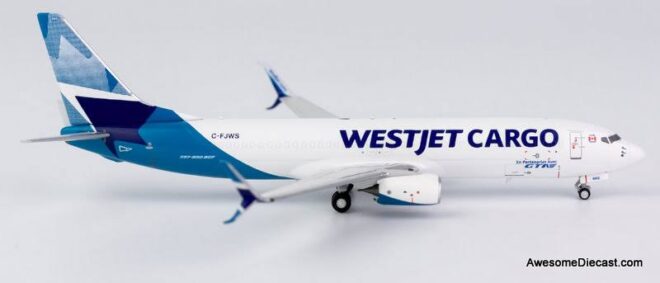
WestJet’s CEO, Alexis von Hoensbroech, has stepped down in October 2024, marking the end of a turbulent chapter for the Canadian airline. His resignation comes as the airline faces multiple challenges that have shaken its public image and operational capabilities. These issues include ongoing labor disputes, widespread criticism over its treatment of passengers with disabilities, and the struggle to maintain competitive service amidst growing internal and external pressures.
A Troubled Tenure
Von Hoensbroech, who took the helm of WestJet in early 2022, brought with him extensive airline experience, having previously served as Chief Commercial Officer at Lufthansa Cargo. His leadership at WestJet was initially viewed as a positive step toward strengthening the airline’s operational efficiency and expanding its international reach. However, as 2024 unfolded, the airline found itself embroiled in multiple controversies that would eventually define his tenure.
One of the most prominent challenges came in the form of labor tensions. In May 2024, WestJet issued a 72-hour lockout notice to its unionized mechanics, members of the Aircraft Mechanics Fraternal Association (AMFA), after the two sides failed to reach a consensus on wage increases and working conditions. The lockout notice, which threatened to halt maintenance operations, came at a time when WestJet was already under pressure to maintain service standards across its network. Von Hoensbroech publicly expressed regret over the decision to escalate the dispute, acknowledging the impact it could have on passengers but insisting that the airline’s offer of a 20% cumulative wage increase was fair and competitive.
Despite these efforts, the strained relationship between WestJet management and the mechanics union was emblematic of broader workforce challenges within the airline. Pilots, flight attendants, and ground staff had also raised concerns about pay and working conditions over the years, exacerbating the airline’s operational difficulties.
Accessibility Issues and Public Outcry
At the same time, WestJet faced growing criticism over its treatment of passengers with disabilities. A highly publicized incident in late 2023 brought the airline’s accessibility policies into sharp focus. Sarah Morris-Probert, a Paralympian and president of BC Adaptive Snow Sports, was forced to drag herself up the stairs to board a WestJet flight after staff failed to provide the necessary equipment to accommodate her wheelchair. The incident, which took place at an international airport, sparked widespread outrage and became a symbol of the airline’s struggles with accessibility.
Von Hoensbroech personally apologized to Morris-Probert and others affected by similar incidents, committing to improving the airline’s approach to serving passengers with disabilities. However, the apology was met with skepticism by many, who felt that WestJet’s failures were systemic and required more than just verbal commitments to address. Morris-Probert herself expressed frustration, stating that despite repeated promises, meaningful change had yet to materialize. “It’s humiliating and it’s dirty,” she said of her experience, adding that the airline’s accessibility failures went beyond isolated incidents and reflected a broader lack of preparedness to meet the needs of disabled travelers.
Leadership Challenges and Strategic Shifts
Von Hoensbroech’s departure also comes at a time when WestJet is navigating a shifting competitive landscape. The airline has been expanding its network, adding new international routes, including flights to Europe and South America, in a bid to establish itself as a global player. While these efforts have been met with some success, the strain on the airline’s resources—exacerbated by the labor and accessibility controversies—has hindered its ability to fully capitalize on these opportunities.

Internally, von Hoensbroech’s leadership style has been the subject of debate. Some industry insiders credit him with steering the airline through the difficult post-pandemic recovery period, where WestJet, like many airlines, had to contend with reduced travel demand, changing consumer behavior, and logistical disruptions. However, others argue that his focus on operational efficiency came at the expense of employee relations and customer service. This tension was highlighted by the labor disputes and the backlash from disabled passengers, both of which seemed to point to a deeper disconnect between WestJet’s leadership and its workforce and customer base.
Von Hoensbroech himself acknowledged the difficulties of balancing these competing priorities. In interviews leading up to his resignation, he stressed the importance of maintaining a strong, financially viable airline while also addressing the concerns of employees and passengers. Yet, as these challenges mounted, it became clear that WestJet needed a change in leadership to move forward.
The Road Ahead for WestJet
As WestJet searches for a new CEO, the airline faces the daunting task of repairing its damaged public image and restoring trust with its employees and passengers. The labor disputes, particularly with the unionized mechanics, remain unresolved, and the potential for further disruptions looms. Additionally, the airline’s commitment to improving accessibility for disabled passengers will be closely watched in the months ahead, as advocacy groups continue to push for greater accountability and systemic change.
Despite these challenges, WestJet remains one of Canada’s leading airlines, with a strong domestic network and ambitious plans for international expansion. The appointment of a new CEO will be critical in determining the airline’s direction moving forward. Industry analysts suggest that WestJet’s next leader will need to prioritize rebuilding relationships with employees, enhancing customer service, and ensuring that the airline’s growth strategies are sustainable.
In the wake of von Hoensbroech’s resignation, WestJet issued a statement thanking him for his contributions and reaffirming its commitment to addressing the challenges it faces. “We are grateful for Alexis’ leadership during a critical time for our airline, and we wish him well in his future endeavors,” the statement read. The airline also indicated that it would begin an immediate search for a new CEO, signaling a fresh start as it seeks to navigate the complexities of the modern aviation industry.
Conclusion
The resignation of Alexis von Hoensbroech as WestJet’s CEO marks the end of a tumultuous era for the airline. His tenure, while marked by some achievements, was ultimately overshadowed by labor disputes and public outrage over accessibility failures. As WestJet looks to the future, the airline faces significant challenges in restoring its reputation and ensuring that it can meet the needs of both its employees and passengers. The search for new leadership comes at a pivotal moment, as the airline seeks to regain stability and chart a course for sustainable growth in an increasingly competitive market.